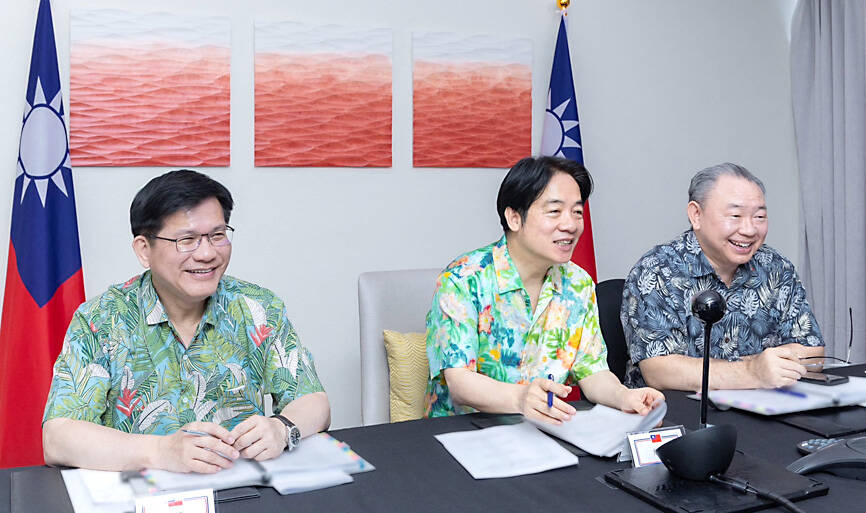Staff writer, with CNA, GUAM
President William Lai (賴清德), who was in Guam on his first official overseas trip since his inauguration earlier this year, called a national security meeting via videoconferencing on Wednesday night, a day after a political crisis erupted in South Korea.
After receiving a briefing about the situation in South Korea, Lai said at the meeting that Taiwan’s national security team must maintain constant contact with other democratic partners to closely monitor developments in the aftermath of the attempt in South Korea to impose martial law.
The president instructed the team to assess the “potential risks and impact” that the chaotic situation in South Korea might have on security, geopolitics and economics in the region, and to be prepared to respond accordingly.

Photo courtesy of the Presidential Office
The 40-minute videoconference, called after Lai arrived in Guam on Wednesday night for a stopover, was held in response to a surprise announcement by South Korean President Yoon Suk-yeol on Tuesday night declaring emergency martial law.
However, Yoon’s snap announcement backfired, as he was forced to revoke his decision six hours later, after the country’s parliament voted unanimously against it.
The embattled South Korean president is now facing impeachment, following his failed attempt to impose martial law in South Korea for the first time in four decades.
In Wednesday’s video meeting, Lai also directed the national security team to continue monitoring the military, diplomatic and cross-strait situations pertaining to Taiwan and to keep him updated as he continued on his Pacific visit.
Several international news agencies, including Reuters, have cited security sources as saying that China might launch a new round of military drills near Taiwan in the coming days, using Lai’s overseas trip and his transit through US territory as a pretext.
The videoconference on Wednesday was attended by National Security Council Secretary-General Joseph Wu (吳釗燮), Minister of National Defense Wellington Koo (顧立雄), National Security Bureau Director-General Tsai Ming-yen (蔡明彥) and other officials in Taipei.